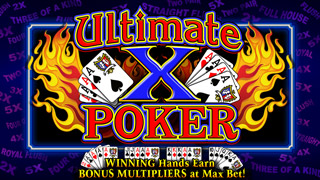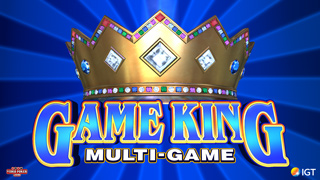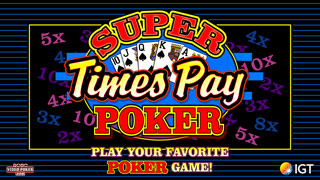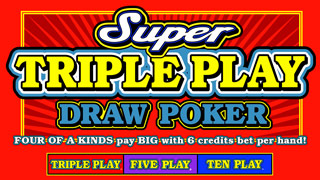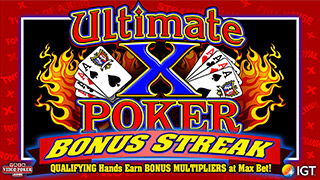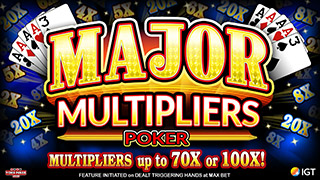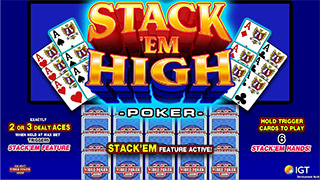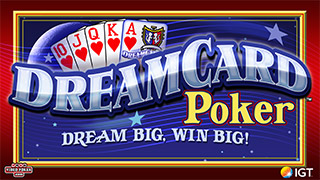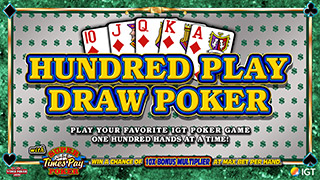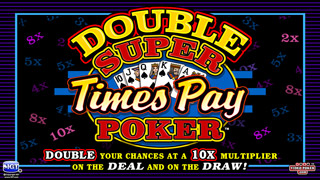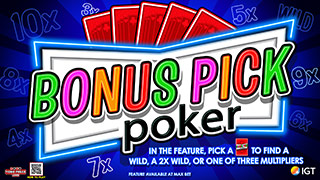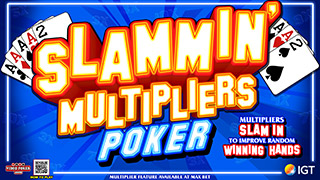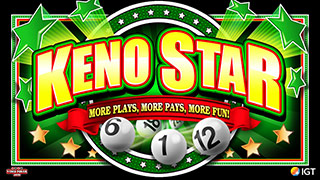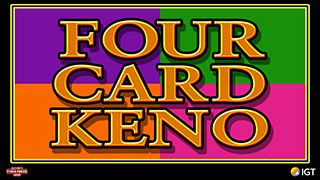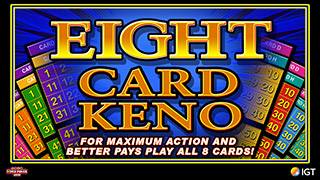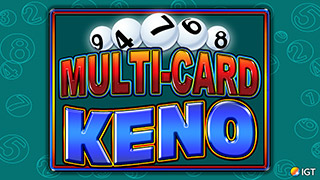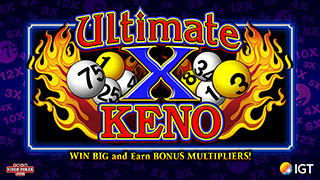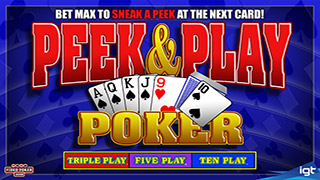Understanding probability may help
-
4queens
- Forum Newbie
- Posts: 2
- Joined: Mon Apr 30, 2007 2:29 pm
Understanding probability may help
I love video poker and I teach college-level statistics. Here are a few tips regarding probability that might help your play.
1. Machine pays such as 100.3 % or 99.9 percent are based on hundreds of thousands of plays. It doesn't mean that you will get back that % of what you play.
2. The probability of a royal flush on the next hand does not change even if you were just dealt a royal. The machine is randomly dealing cards and all possible outcomes have the same probability (possibility) independent of previous hands.
3. Don't leave a machine because of a big hit. It may still be hot. Machines do tend to run in cycles of good hands and bad hands. This works just the same as flipping a coin. Over an infinite number of coin flips, the outcome would be 50/50, the same as the odds. On any one flip, the odds are always 50/50. But outcomes less than infinity will differ. It may not be probable, but it is possible to flip 10 heads in a row or even 100 heads in a row. If you have flipped 10 or even 100 heads in a row, the odds on the next flip (i.e. the next video poker hand odds are same for video poker) are still the same, 50/50. Remember, the machine does not know whether it has hit or dealt you the worst possible hand.
1. Machine pays such as 100.3 % or 99.9 percent are based on hundreds of thousands of plays. It doesn't mean that you will get back that % of what you play.
2. The probability of a royal flush on the next hand does not change even if you were just dealt a royal. The machine is randomly dealing cards and all possible outcomes have the same probability (possibility) independent of previous hands.
3. Don't leave a machine because of a big hit. It may still be hot. Machines do tend to run in cycles of good hands and bad hands. This works just the same as flipping a coin. Over an infinite number of coin flips, the outcome would be 50/50, the same as the odds. On any one flip, the odds are always 50/50. But outcomes less than infinity will differ. It may not be probable, but it is possible to flip 10 heads in a row or even 100 heads in a row. If you have flipped 10 or even 100 heads in a row, the odds on the next flip (i.e. the next video poker hand odds are same for video poker) are still the same, 50/50. Remember, the machine does not know whether it has hit or dealt you the worst possible hand.
-
billryan
- Video Poker Master
- Posts: 4422
- Joined: Thu Jan 15, 2009 1:20 pm
The machine is randomly dealing cards and all possible outcomes have the same probability (possibility) independent of previous hands.
How does that correspond with your hot machine theory?
Either the cards are being dealt random or they aren't.
A hot machine implies they aren't random.
How does that correspond with your hot machine theory?
Either the cards are being dealt random or they aren't.
A hot machine implies they aren't random.
-
Eduardo
- Video Poker Master
- Posts: 2967
- Joined: Thu Aug 31, 2006 7:19 pm
He is simply talking about how you can look back at a series of coin flips and say the coin was "hot" (heads) or "cold" tails over certain periods. This only works in hindsight. The coin itself is not hot or cold, and equally likely to flip heads or tails on the next flip. The coin wasn't "programmed" to be hot or cold in those times. It is just an expected observation of random events. Like he said, just because a coin is "hot" and flipped 10 heads in a row, that is no reason to believe the next flip is more likely to be heads.So, a hot machine does not imply "not random." It just means it was hitting.
-
billryan
- Video Poker Master
- Posts: 4422
- Joined: Thu Jan 15, 2009 1:20 pm
No. The OP states machines run in cycles. Cycles aren't random.
-
rsactuary
- Forum Regular
- Posts: 75
- Joined: Thu Sep 15, 2011 10:26 pm
I would never expect Point 3 to be made by someone who says they teach college-level statistics.That is the same tactic used by most fake news stories to try and impart some validity to their story.
-
billryan
- Video Poker Master
- Posts: 4422
- Joined: Thu Jan 15, 2009 1:20 pm
I'm not surprised it was said by someone who says they teach college level math.
-
Tedlark
- Video Poker Master
- Posts: 8832
- Joined: Mon Oct 02, 2006 12:29 am
The OP in point 3 states that the machines: tend to run in cycles of good and bad hands. Because of the RNG there is absolutely no telling just how long, or how short, these cycles of good and bad hands may be.
This is one reason why playing short coin doesn't work.
This is one reason why playing short coin doesn't work.
-
DaBurglar
- Video Poker Master
- Posts: 4535
- Joined: Thu Jun 16, 2011 12:11 pm
This guy does not teach "college level stats" (and what the hell is that anyway? The proper way to express this is "I teach statistics in college"! Math is math, you don't need to be around Notre Dame, or Harvard to learn or teach it.
But yeah, everyone else nailed it, point number 3 is horse crap
But yeah, everyone else nailed it, point number 3 is horse crap
-
olds442jetaway
- Video Poker Master
- Posts: 11480
- Joined: Tue Aug 21, 2007 9:08 pm
I don't see a problem with point 3. Stating things run in hot or cold cycles is just stating a fact. The only time the math comes around is over infinity. Ever walk by a Roulette game and see the reds and blacks posted. The casino does that because it knows the odds of a red or black on the next spin are the same and their posting of the results may suck players into betting because one may say.....wow 9 blacks in a row....red is due. I'm betting big bucks on red. been there done that. 30 some years ago there had been multiple consecutive reds on a roulette wheel in Atlantic City at the ole Playboy Club. I started betting on black. My bankroll was 200 bucks. Several more reds came out and busted my budget. A total of 14 consecutive reds in all. The odds of the next spin being red would be the same. The probability of that event happening however, would have been millions or even billions to one. I guess vman would know the probability or Alpax of 14 consecutive reds on a 2 zero roulette wheel. I have forgotten how to compute it. edited to change is to are after I proofred
-
alpax
- Video Poker Master
- Posts: 1942
- Joined: Sat Jun 14, 2014 4:42 pm
olds, to get the odds of 14 consecutive Red number on two zero roulette.
There will be 38 total combinations with 18 red, 18 black, and 2 green zero spots.
A chance of a red is 18 out of 38
18 / 38 = 0.47368421052
To get consecutive calculations you would need to take the exponent to the 14 power.
0.47368421052 ^ 14 = 0.00002863154
Take the Inverse of that by doing exponent to negative 1 power
0.00002863154 ^ -1 = 34926.5180986
Thus the answer you are looking for is 1 in 34926.52 which is very rare odds.
Hope this helps
There will be 38 total combinations with 18 red, 18 black, and 2 green zero spots.
A chance of a red is 18 out of 38
18 / 38 = 0.47368421052
To get consecutive calculations you would need to take the exponent to the 14 power.
0.47368421052 ^ 14 = 0.00002863154
Take the Inverse of that by doing exponent to negative 1 power
0.00002863154 ^ -1 = 34926.5180986
Thus the answer you are looking for is 1 in 34926.52 which is very rare odds.
Hope this helps



